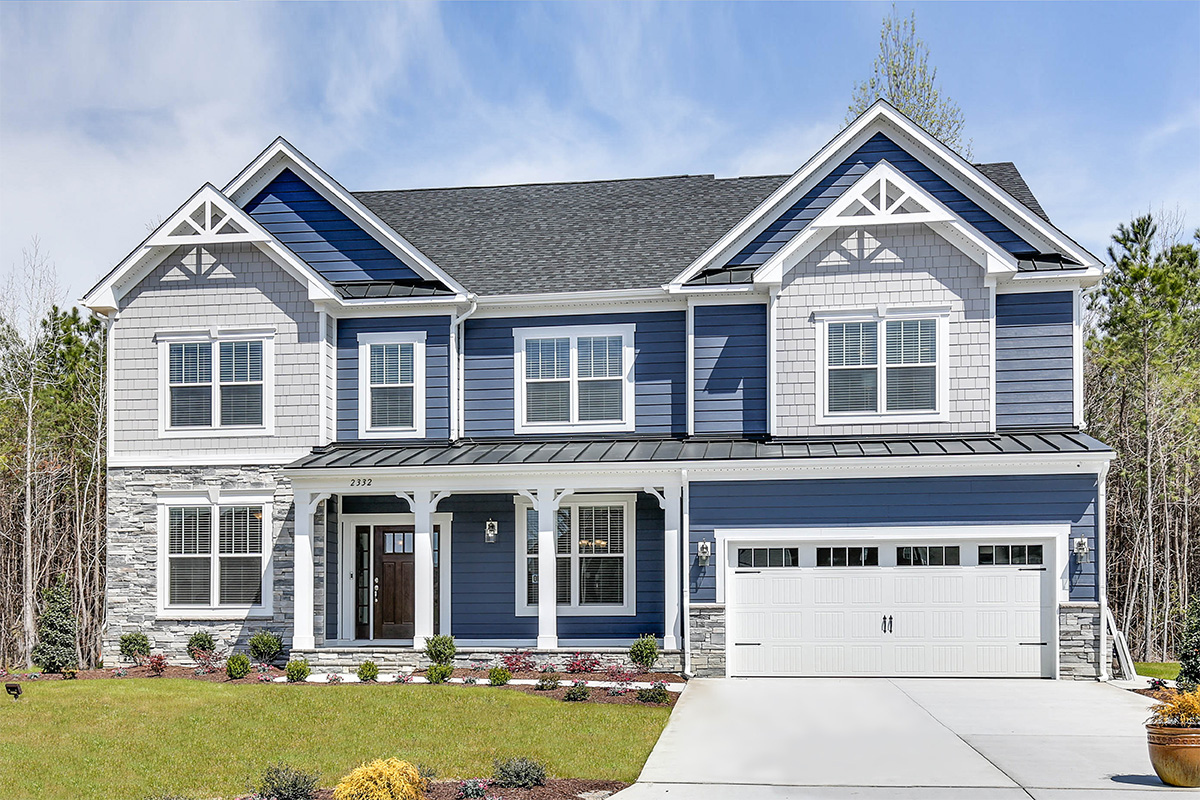Buying a home is a big milestone in our lives and it’s typically the largest purchase we will ever make. So it stands to reason that we would want a new home to be as perfect as possible. It’s especially exciting to start fresh, in a new construction home. Imagine moving into a home that is completely pristine, without a fingerprint on anything, modern features, energy efficiency, and options that you can customize to your own tastes.
For new homebuyers, often there can be worries of the buying process being stressful and confusing. It doesn’t have to be so however. With a little planning, research, and patience, homebuyers can stay in control of, and enjoy the process.
Where to start? Breathe.
And do not start looking at homes yet. Consider first, is the time right to buy a new home? Do not make your decision to purchase a home on the idea that you are throwing away money on rent or because it’s a buyers’ market. Make the decision to buy a home because you want to become a homeowner, you are ready to settle down in one place for several years, you are ready to take on the responsibility of maintaining a property, and because you are financially ready.
Determine what you can afford
Take a look at your current financial situation and your financial habits. If you are not saving for a down payment, start immediately. Having a down payment can make a huge difference in your monthly mortgage payment; more on that in a moment.
If you have the time, it also might be a great exercise to do a dry run of paying bills with a mortgage. This can help you experience the reality of making a mortgage payment each month before making the commitment. One important thing to keep in mind is that you don’t want to compare rent to mortgage. When looking at mortgage payment calculations, there are always additional costs to be added in, including homeowner’s insurance, PMI (private mortgage insurance) depending on your down payment, and property tax. On the flip side however, there are really some great tax benefits for homeowners such as deductions for property tax and mortgage interest.
Pros typically recommend the following for financial preparedness:
- Your mortgage should not exceed 28% of your income; less if you have several other high costs such as private school for example
- Aim to have 3-6 months of income in an emergency fund.
- Also plan to have funds saved separately to use for any home improvement and future maintenance. Even with a new construction home, maintenance is a must to keep it in great shape!
- Be prepared to make a down payment, unless you have VA eligibility. Most loans will require a down payment, the minimum is often at 3% of the purchase price. It’s important to know however, the more you put down, the lower your monthly mortgage payments will be. And if you are able to make at least a 20% down payment, you will avoid having to pay the PMI (private mortgage insurance) which will save quite a bit as well.
Determine Your Ideal Location
We know the phrase “location is everything”, and that has never been truer when it comes to where you live. Whether it be for a convenient commute to work, proximity to shopping and entertainment, or a particular school district, the location of your new home is a huge factor to consider before you start looking. Once you have narrowed down the locations that would be ideal for your preferences, then you can start looking for new construction homes and communities within those areas.
Decide which features are “must-haves” and which ones are “nice-to-haves”
Before you start shopping for your new home,it’s important to make a list of all the features you want in a home and determine which ones you can’t live without. This is a large investment, and it’s also the place you will call home for several years to come. Your new home should always be a source of comfort and be able to evolve with you as time goes by. For example, if you happen to love gardening but your new home doesn’t have a mudroom, you may find yourself wishing for one as time goes by. Once you have a list of all the features you want, separate them into the “must-haves” (the deal breakers) and the “nice-to-haves”, features that you might be able to add later or live without.
Start house hunting
Now the real fun begins. Searching online is an excellent way to get started, but definitely take drives around the areas you have decided to search in. Get a first-hand look at the communities, layouts, amenities, the neighbors, and look for the open models. Depending the time of day, odds are you can stop at the model and take a tour! Also, be sure to jot down the community and builder details so you can check them out online for more information. Narrow your searches based on your features list and preferred location and enjoy browsing!
A tip to keep in mind. Don’t fall in love at first sight because, sometimes there are other potential buyers who are also falling in love. You don’t want to get your heart set on a home until you know your offer is in and you’ve got your dream home in the bag!
Reach out to the site agent
You don’t need to have a real estate agent when buying a new construction home. Your best bet is to work directly with the site agent who will have the most in-depth knowledge of the homes they are selling and can usually get you a much better deal than a third-party agent. He or she can discuss all of the options available with each model and will have a thorough understanding of what the builder can offer and customize. Your site agent will also be able to guide you through the entire purchase process to make it a streamlined and stress-free experience.
Understanding the types of loans available
There are several types of loans, and multiple options out there, so it pays to do your research to understand what to expect for your financial situation. The most common types of loans include conventional, FHA, and VA. Conventional mortgage loans are not part of any government program and are not guaranteed by the federal government. These loans can sometimes offer additional features based on guidelines set by lenders, for example, using stocks and bonds as security. FHA and VA loans (among others) are government-backed and insured. Benefits include low (FHA) or no (VA) down payment, which makes buying a home accessible to more people.
When you start working with a builder, they will connect you with their lender who can help with all the complexities and specifics of loans. The benefit of working with your builders preferred lender is that often they will be able to provide additional incentives.
Get Pre-qualified
You’ll hear the terms “pre-qualified” and “pre-approved” used frequently when starting your search for a new home, but it can sometimes be confusing to know the difference. Pre-qualified is the first step, it’s fairly simple, and helps you get an idea of what you can afford. Based on your financial picture, including your assets, debt, and income, you will get an approximation of the amount of mortgage you may be approved for. This does not guarantee an amount but will get you started with planning. Getting pre-approved is a more in-depth process, and involves completing a mortgage application, as well as extensive checks into your financial background and credit rating. Your builders preferred lender will be able to help you through this process.
Research homeowner’s insurance
Home insurance is a must! Often you can get a discount on your homeowner’s insurance by using the same company you use for your automotive insurance. A few questions to ask when shopping for insurance. What will the policy cover and what won’t it cover? How much do I need to protect? How much would it cost to rebuild my new home?
Making it official
Once you have found a home you like, it’s time to take the step of making it official. This can be exciting and nerve-wracking all at once, but your site agent will help you through the process and handle all the paperwork. Be prepared, there is a lot of paperwork, but the site agent will review it all with you in detail. You will also be required to put forth “earnest money” as a show of good faith to secure your interest in the property. These funds are held in escrow and are applied to your down payment at closing.
The walk through
Either the day before, or sometimes on the day of closing, you’ll take one more walk through of the home you are about to purchase to ensure all work is completed to your satisfaction. If everything looks good, it’s time to go sign your final paperwork at closing.
Closing the deal and getting the keys to your new home
By now, you’ve traversed the full path to new home ownership and you are just moments away from the next phase of your life. Be prepared to review several legal documents including the agreement between you and the lender on your mortgage terms, and the agreement between you and the builder. Once you have signed all of your paperwork, you will be given copies of everything, and the keys to your new home.
While buying a new construction home does involve many steps, it can be a very pleasurable experience. We encourage you to take your time shopping for the right home, enjoy all of the wonderful, exciting moments along the way, and most of all, have fun making memories in your new home. Cheers!










